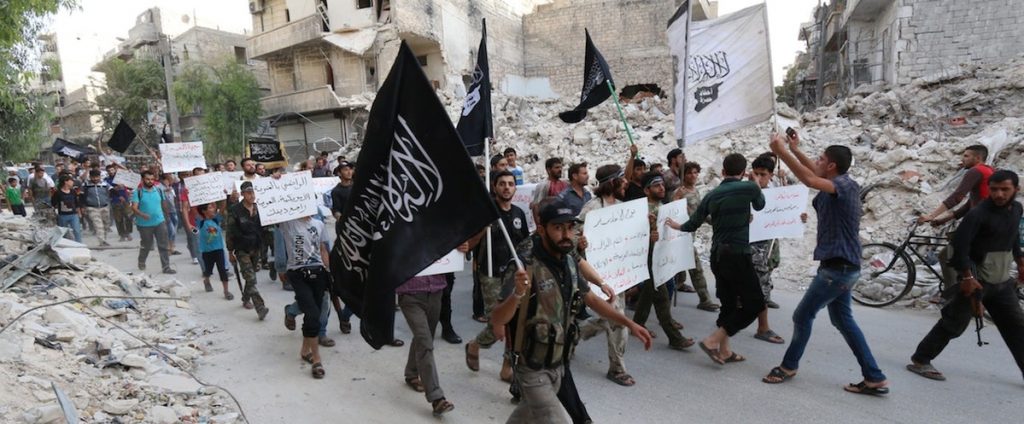
In an effort to remain relevant, al-Qaeda has shifted its strategic focus from Yemen to Syria but continues to pursue a globalist agenda by seeking ways to attack Western targets, according to an expert report, like reported by intelnews.org.
Following the meteoric rise of the Islamic State in 2014, al-Qaeda found it difficult to retain its title as the main representative of the worldwide Sunni insurgency. But in an argue published last week on the website of the RAND Corporation, two al-Qaeda experts argue that the militant group is rebounding.
The authors, Middle East Institute senior fellow Charles Listeris and RAND senior political scientist Colin Clarke, editorial that al-Qaeda followed a pragmatic and patient strategy after 2014. Specifically, the group remained on the margins and “deliberately let the Islamic State bear the brunt of the West’s counterterrorism campaign” they argue. At the same time, al-Qaeda has sought to remain relevant by shifting the center of its activity from Yemen to Syria. That decision appears to have been taken in 2014, when the group began to systematically transport assets and resources from its traditional strongholds of Afghanistan and Pakistan to the Levant, the authors argue.
Observers are still evaluating the implications of al-Qaeda’s strategic shift. Listeris and Clarke note that counterterrorism experts have yet to fully understand them. What appears certain is that al-Qaeda’s branch in Syria, the al-Nusra Front, “proved to be the most potent military actor on the battlefield” in the Levant. It did so by operating largely independently from al-Qaeda central, which allowed it to act with speed in pursuit of a strictly localized agenda that attracted many locals. At the same time, however, al-Nusra’s independence effectively separated it from its parent organization. Many al-Qaeda loyalists accused the group of abandoning al-Qaeda’s principles and left it when it rebranded itself to Jabhat Fateh al-Sham (Levantine Conquest Front) in 2016 and Hayat Tahrir al-Sham (Organization for the Liberation of the Levant) in 2017.
Al-Qaeda itself denounced Hayat Tahrir al-Sham in 2018 and today supports a number of smaller militias that operate on the ground in Syria. These smaller groups appear to be extremely professional and experienced, and are staffed by “veterans with decades of experience at al Qaeda’s highest levels”. What does this mean about al-Qaeda’s strategic priorities? Listeris and Clarke argue that Syria remains al-Qaeda’s priority. But the group remains focused on attacking the West while also pursuing guerrilla warfare in Syria, they say. This reflects al-Qaeda’s overarching narrative, namely to fight in local conflicts while pursuing the “far enemy” (the West), which it sees as a mortal enemy of Islam.


